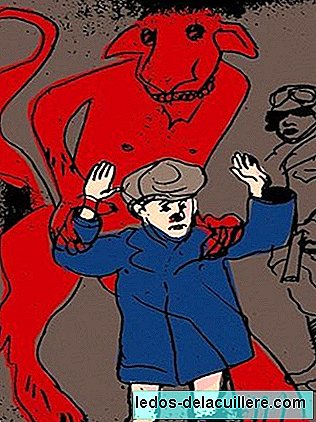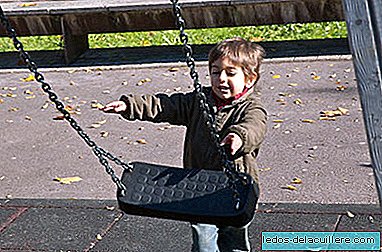
Fear is a universal feeling and normal, expression of fear. But although fear is a natural feeling and has a point of connection with the essence of humanity and with the need to preserve life, it is not pleasant for anyone.
Normally, children have fears that are organized in their mind as part of learning, stimulating them and shaping their personality. Some will be more impressionable than others.
They are not usually the usual cases, but when fear has not been able to act as a stimulus and organizer of the child's psyche and becomes an uncontrollable and destructive feeling, the situation is reversed in a very clear and intense damage.
Then, external help is needed (pedagogical, social, psychological, psychiatric ...). It would be in the following cases when irrational fear needs help, alarm signs that tell us that fear (or absence) is not normal It becomes pathological:
When the symbolic, allegorical, magical elements, etc. that have to help you express your emotions are so frequent and intense that they completely populate your interior (for example, continually think of crocodiles, witches ...), expelling and preventing any other interest, thought or idea from developing, and chronifying your fears .
When fear blocks him and anything (the unknown, the darkness, society, a dog), however innocuous, feels it as something so dangerous and insurmountable that in order to avoid the risk of being attacked and defeated it is paralyzed and cannot learn from its experiences because he can't have them.
When there are apparently no fears and not even the child recognizes them, but when the conscious alert of the vigil subsides and the child sleeps night terrors and nightmares appear, because in reality there was a repressed fear.
When there is a terror of the destruction of being, with the certainty that there is no way out, the child's inner world has no possibility of organizing or disorganizing (autism, psychosis).
On the opposite side, there is the total absence of fear. When a child cannot recognize the real danger and repeatedly seeks and puts himself in situations of risk, because in the frustration of recognizing himself limited, he defends himself by assuming and proclaiming himself omnipotent.
A single point does not mean that there is pathology, but we should consult the specialist to know the recommendations that help the child understand, elaborate and overcome their fears. We have already talked on other occasions about how to act before childhood fears and help overcome some of them, such as night fears or fear of bathing.
According to specialists, both overprotection and making him feel guilty or cowardly are negative attitudes that can confuse the problem, even achieve the opposite effect, produce more fear.
Above all, we must maintain an attitude of serenity and dialogue, never laugh at them, or ridicule them, or threaten them, or frighten them more so that they obey. Encourage them to verbalize their feelings, tell stories that help them understand fear, are help that we can offer from the family.
But if we consider that some of the above points are met and we are concerned about the emotional health of the child, We could face a case of pathological fear and we should seek help, starting with the pediatrician or child psychologist.












